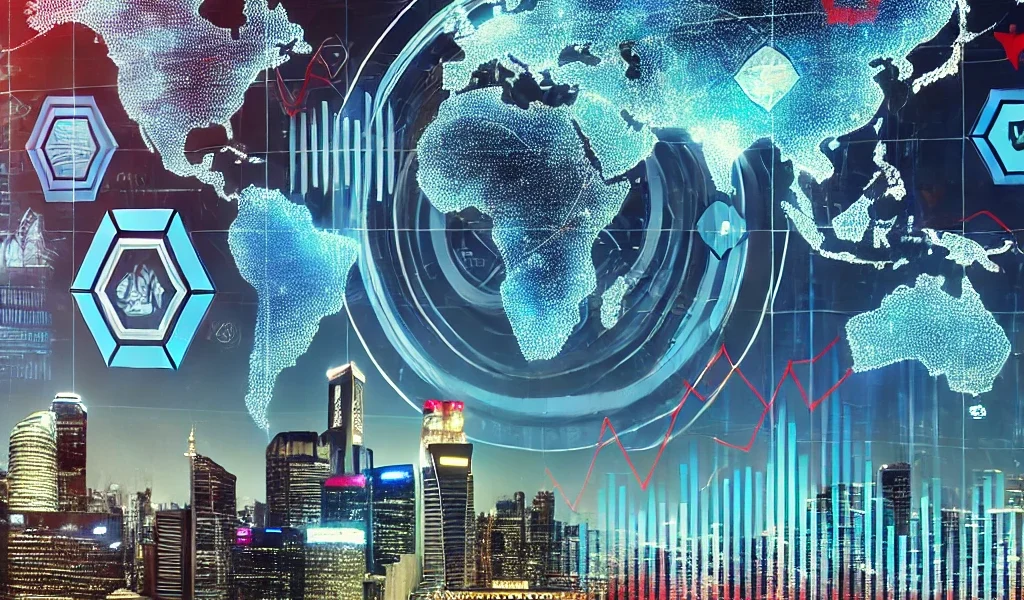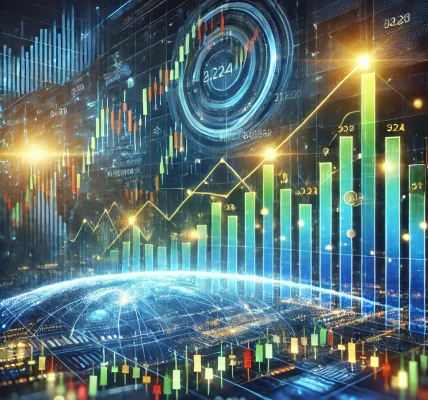Introduction
The global stock market is highly sensitive to international events and geopolitical tensions. From economic policies and trade wars to military conflicts and pandemics, external factors play a crucial role in shaping market trends. Understanding how these factors impact stock markets is essential for investors looking to navigate uncertain economic landscapes. This article explores the relationship between global events, geopolitical tensions, and stock market movements, providing insights into risk management and investment strategies.
Understanding Market Sensitivity to Global Events
Stock markets react to global events based on their perceived impact on economic stability, investor confidence, and corporate performance. Significant events can create volatility, triggering rapid price fluctuations in individual stocks or entire indices.
Types of Global Events That Affect Stock Markets
- Economic Policies and Trade Agreements
- Changes in monetary policies, interest rates, or fiscal strategies influence investor sentiment.
- Trade agreements or disputes affect international businesses and industry sectors reliant on imports/exports.
- Military Conflicts and Wars
- Geopolitical conflicts create economic uncertainty, disrupting supply chains and trade routes.
- Investors often seek safe-haven assets such as gold, bonds, or stable currencies like the U.S. dollar.
- Pandemics and Health Crises
- Global health emergencies (e.g., COVID-19) cause market downturns, economic slowdowns, and shifts in consumer behavior.
- Healthcare and pharmaceutical stocks may rise, while travel and hospitality industries face losses.
- Natural Disasters and Climate Change
- Hurricanes, earthquakes, and other disasters impact industries, from agriculture to insurance.
- Long-term climate concerns drive shifts toward sustainable investing (e.g., ESG-focused stocks).
- Political Instability and Elections
- Elections and regime changes influence market confidence, economic policies, and industry regulations.
- Uncertainty surrounding leadership transitions often leads to short-term market fluctuations.
- Technological Disruptions and Cybersecurity Risks
- Global cybersecurity threats or major technological failures can impact investor confidence.
- Data breaches or cyberattacks on financial institutions may lead to market turbulence.
Impact of Geopolitical Tensions on Stock Markets
1. Market Volatility and Investor Sentiment
- Geopolitical instability increases uncertainty, leading to heightened volatility.
- Institutional investors may engage in risk-off strategies, shifting capital away from volatile equities.
2. Currency Fluctuations
- Political instability can weaken a country’s currency, affecting multinational corporations.
- Investors turn to stable currencies such as the U.S. dollar, Swiss franc, or Japanese yen.
3. Commodity Price Movements
- Tensions in oil-producing regions cause fluctuations in crude oil prices, affecting energy stocks.
- Geopolitical crises influence gold prices, a traditional safe-haven investment.
4. Supply Chain Disruptions
- Trade wars, sanctions, and conflicts impact global supply chains, affecting industries reliant on international suppliers.
- Companies with diversified supply chains may have a competitive edge during geopolitical crises.
5. Impact on Different Sectors
- Defense and Security Stocks: Rise during geopolitical conflicts.
- Energy Stocks: React to fluctuations in oil and gas prices.
- Technology and Manufacturing: Affected by trade restrictions and tariffs.
Historical Examples of Global Events Impacting Stock Markets
1. The 2008 Global Financial Crisis
- Affected global banking institutions, leading to severe market declines.
- Governments implemented stimulus packages to stabilize markets.
2. The COVID-19 Pandemic (2020-2021)
- Initial market crash followed by significant recoveries due to stimulus policies.
- Shift in investment focus toward tech, e-commerce, and healthcare.
3. Russia-Ukraine Conflict (2022-Present)
- Global energy markets affected due to sanctions and supply chain disruptions.
- European markets hit hard, while defense and energy stocks surged.
4. U.S.-China Trade War
- Tariffs led to market uncertainty, particularly in the technology and manufacturing sectors.
- U.S. and Chinese markets experienced fluctuations as trade negotiations continued.
Investment Strategies to Mitigate Risks from Global Events
1. Diversification
- Invest in multiple asset classes to reduce risk exposure.
- Geographically diversified portfolios help offset regional instabilities.
2. Safe-Haven Assets
- Allocate capital to gold, government bonds, or defensive stocks (utilities, healthcare) during market uncertainty.
3. Hedging with Derivatives
- Options and futures contracts can be used to hedge against market downturns.
- Forex trading strategies can help mitigate currency risk.
4. Long-Term Perspective
- Avoid panic selling; market downturns often recover over time.
- Focus on fundamentally strong companies with sustainable business models.
5. Stay Informed and Monitor Trends
- Keep track of geopolitical developments and economic indicators.
- Regularly review investment portfolios and adjust strategies accordingly.
Conclusion
Global events and geopolitical tensions significantly influence stock markets, causing volatility, supply chain disruptions, and shifts in investor sentiment. While these events pose risks, they also present opportunities for informed investors who strategically diversify their portfolios and monitor global economic trends. By understanding market reactions to global uncertainties, investors can make well-informed decisions and navigate the complexities of an ever-changing financial landscape.




